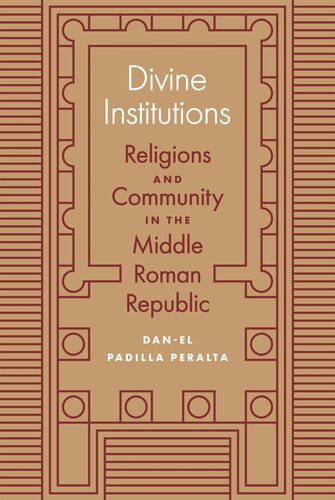

Most ebook files are in PDF format, so you can easily read them using various software such as Foxit Reader or directly on the Google Chrome browser.
Some ebook files are released by publishers in other formats such as .awz, .mobi, .epub, .fb2, etc. You may need to install specific software to read these formats on mobile/PC, such as Calibre.
Please read the tutorial at this link: https://ebookbell.com/faq
We offer FREE conversion to the popular formats you request; however, this may take some time. Therefore, right after payment, please email us, and we will try to provide the service as quickly as possible.
For some exceptional file formats or broken links (if any), please refrain from opening any disputes. Instead, email us first, and we will try to assist within a maximum of 6 hours.
EbookBell Team

4.8
54 reviewsHow religious ritual united a growing and diversifying Roman Republic
Many narrative histories of Rome's transformation from an Italian city-state to a Mediterranean superpower focus on political and military conflicts as the primary agents of social change. Divine Institutions places religion at the heart of this transformation, showing how religious ritual and observance held the Roman Republic together during the fourth and third centuries BCE, a period when the Roman state significantly expanded and diversified.
Blending the latest advances in archaeology with innovative sociological and anthropological methods, Dan-el Padilla Peralta takes readers from the capitulation of Rome's neighbor and adversary Veii in 398 to the end of the Second Punic War in 202, demonstrating how the Roman state was redefined through the twin pillars of temple construction and pilgrimage. He sheds light on how the proliferation of temples together with changes to Rome's calendar created new civic rhythms of festival celebration, and how pilgrimage to the city surged with the increase in the number and frequency of festivals attached to Rome's temple structures.
Divine Institutions overcomes many of the evidentiary hurdles that for so long have impeded research into this pivotal period in Rome's history. This book reconstructs the scale and social costs of these religious practices and reveals how religious observance emerged as an indispensable strategy for bringing Romans of many different backgrounds to the center, both physically and symbolically.